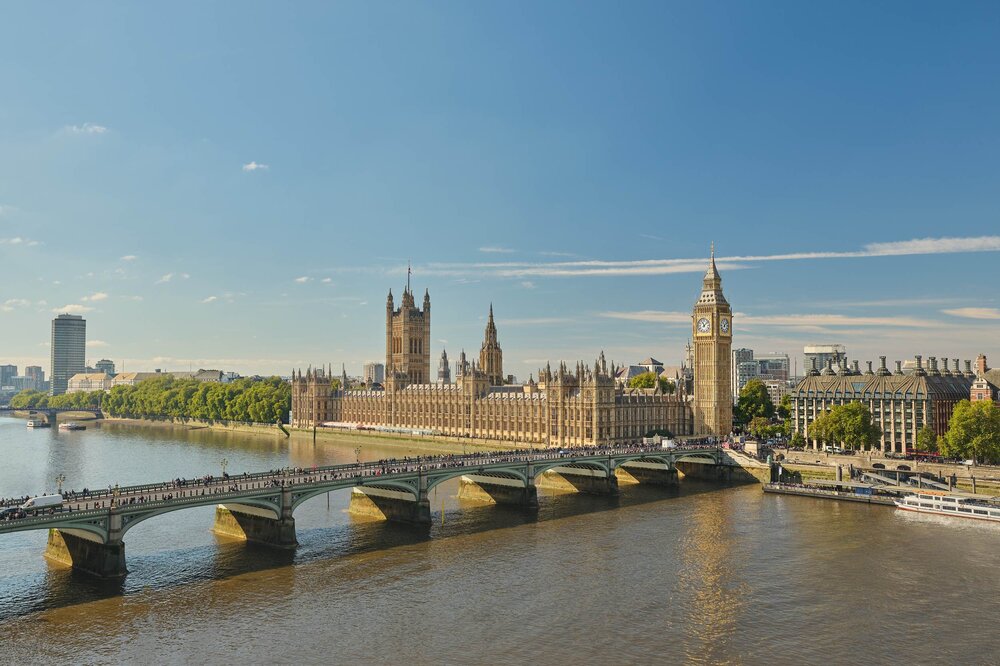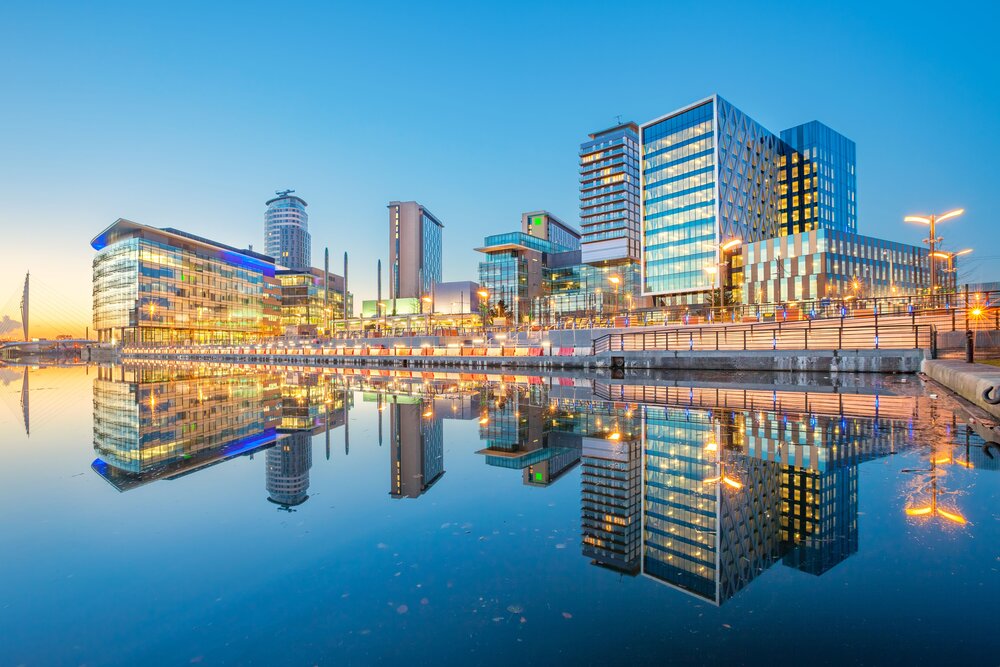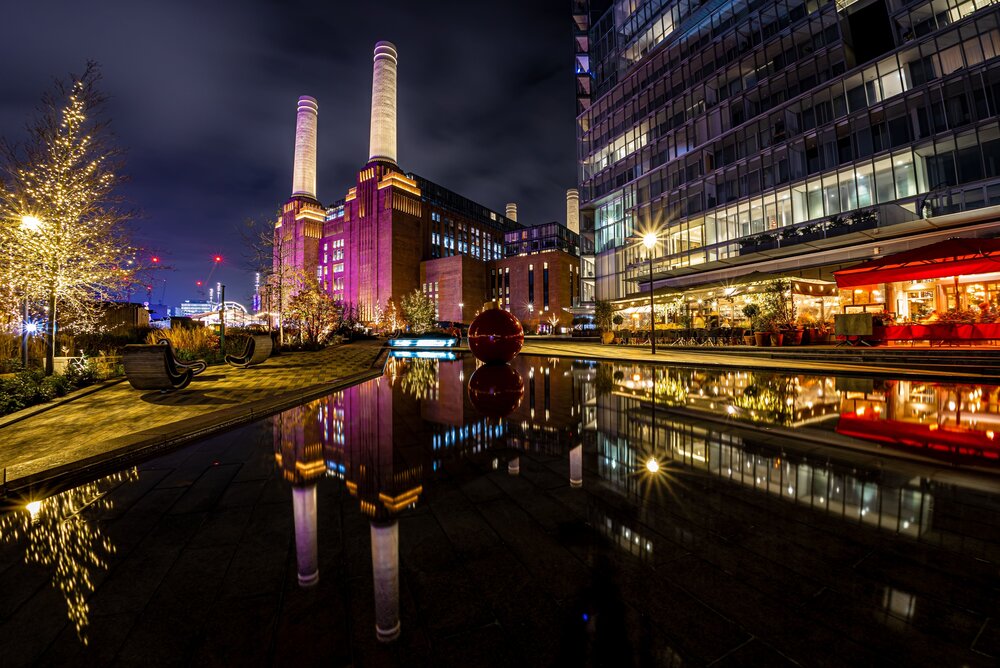GCC visit numbers are expected to reach 1.4 million in 2025
Following the recent launch of the Starring Great Britain campaign, Connecting Travel met with Gary Robson, Director for Europe, the Middle East & India at VisitBritain, to discuss how the GCC is one of the country’s most important inbound markets.
A veteran in the travel and tourism industry, Robson has worked with VisitBritain for 17 years, and while the GCC ranks ninth globally as a UK source market, high visitor spend makes it more significant.
Here, Robson reveals who’s travelling to the UK from the Gulf and how the travel trade can harness that influx to make more bookings.
CONNECTING TRAVEL: How important is the GCC market to the UK?
GARY ROBSON: The GCC market is very important to the UK, and is second only to the US in terms of value. When it comes to the number of visitors, the GCC ranks ninth globally, but the key here is the high spend of the GCC travellers.
Our forecast for 2025 predicts visits to the UK from the GCC will be 1.4 million, up 7% on 2024, and spend will be GBP3.5 billion (US$4.7 billion), a significant increase of 25% against 2024.
The UAE will account for 552,000 of those visits, up 9%, and GBP1.1 billion (US$1.5 billion) of spend, while Saudi Arabia will account for 311,000 visits and GBP901 million (US$1.2 billion) of spend, an increase of 24%.
 GCC visitor numbers to the UK are expected to reach 1.4 million
GCC visitor numbers to the UK are expected to reach 1.4 million
CT: How is the GCC market segmented?
GR: The highest proportion of visits from the GCC market were from the UAE at 44%, which accounted for more than one-third (37%) of spend, followed by Saudi Arabia (27% visits, 29% spend), then Kuwait (14% visits, 17% spend) and Qatar (8% of visits, 10% spend). Oman and Bahrain each made 4% of visits.
Leisure is the main reason GCC residents travel to the UK, with 42% visiting for holidays, while one-third (34%) travel to visit friend and relatives (VFR) and 17% go for business.
Notably, Saudi and Kuwait feature highest for holiday visits, with 70% and 66% respectively, while the UAE has the highest share of VFR travel at 50%.
We have seen that GCC travellers stay 11 nights on average in the UK, with Bahrain residents staying the longest (18 nights), followed by Oman (15 nights) and Kuwait (12 nights).
RELATED:
VisitBritain debuts new campaign to Middle East audience
Great Britain steals the spotlight at 2025's TV and film awards
England’s essential luxury travel experiences outside of London
CT: With 200 nationalities living in the GCC, which are coming to the UK most often?
GR: Data shows that more than half (58%) of visitors to the UK from the GCC region in 2023 were Gulf nationals. Of those, Saudi nationals accounted for 22%, and Emiratis 14%.
UK nationals living in the GCC made up a fifth (22%) of all visitors to Britain, 8% were Indian nationals, with the remaining 12% a mix of nationalities.
Interestingly, we had conversations with tour operators during ATM 2025 and one of the insights was that while British expats are visiting the UK to see family and friends, increasingly they are exploring other parts of the UK during their trip.
VFR will happen by itself, but the trade can still make a difference in engaging them to explore the many different regions of Britain
CT: How do you market the destination to these different nationalities?
GR: Our approach is informed by research and insights which we use to tap into motivations to travel in each market. VisitBritain’s research shows that Experience Seekers are the largest segment of inbound visitors to Britain. They are high-value travellers who seek new, unique and exciting adventures and more than half are considering visiting Britain within the next five years.
Research shows that 70% of Gen Z and Millennials, who form a large part of our Experience Seekers segment, have been inspired to visit a destination after seeing it featured in a TV show or movie.
Our recent ‘Starring GREAT Britain’ campaign tapped into this set-jetting trend, as we aim to encourage visitors to broaden their itineraries by showcasing experiences that travellers can enjoy year-round, discover more of Britain, travel beyond London, and stay longer – increasing spending and boosting regional economies.
Launched in February 2025, the campaign showcases locations across England, Scotland and Wales that have starred in films and on TV, including the iconic Alnwick Castle in Northumberland where Harry Potter scenes were filmed.
Culturally relevant campaigns and content are shared in English and Arabic across our website and social media platforms. We also prioritise platforms that resonate with GCC audiences. For example, Snapchat is especially popular in Saudi Arabia and plays a key role in our outreach there.
CT: What are the challenges of selling to Middle East markets?
GR: Regional dispersal remains a big challenge, as London is still the top destination for GCC travellers. Despite interest in experiencing Britain’s coast and countryside, building confidence and awareness around these destinations is key to encouraging visits beyond London.
We have a country full of so many different experiences, and tremendous connectivity to places such as Manchester, which is a great place to explore. There are the football connections of course, but beyond that you’ve got food, nightlife experiences and wonderful accommodations that match every pocket.
Increased airline connectivity and the Electronic Travel Authorisation (ETA) scheme have made travel to the UK easier and more accessible for GCC nationals. The ETA allows unlimited visits over a two-year period and there is strong flight connectivity to all major UK airports, presenting an opportunity to expand travel across the UK.
It’s also a very competitive market, so we always try to stay one step ahead of our competitors.
We think our Starring GREAT Britain campaign is the way to differentiate ourselves and keep on trend
CT: Beyond London, which regions are proving to have the most appeal to GCC markets?
GR: Around three-quarters (76%) of all visits from GCC markets were to London in 2023, leaving just 24% of visits spread across other regions in the UK. We are seeing growing airline connectivity from the region direct to destinations beyond London, with Saudia operating a thrice-weekly Jeddah-Birmingham service and Emirates resuming its Dubai-Edinburgh route.
In marketing, we plan to focus on three specific regions. First we have the Northwest and Manchester as a gateway to this region, including Liverpool, the Lake District and Yorkshire. Second is Edinburgh in Scotland, which we are linking with Newcastle, which has Saudi connections thanks to Newcastle United football club being owned by Saudi’s sovereign wealth fund PIF. And finally, London as the gateway to the south, including Oxford, Cambridge, Bath, the Cotswolds and Kent.
 Lake Windermere in the Lake District, UK
Lake Windermere in the Lake District, UK
CT: Regenerative tourism is a focus for VisitBritain, how are you realising this in your strategy?
GR: We are strategic in how, when and where we drive visitors to destinations. For example, we don’t drive visitors to Edinburgh in the middle of the summer during the annual festival, but instead do so when there is capacity.
With the GCC market, we look to drive visits in the shoulder season, from September onwards. This is also one of Emirates airline’s key aims, so it aligns well. We are also focused on driving GCC traffic beyond the traditional hotspots, providing alternatives, for example, to Loch Ness in Scotland and the nearby Harry Potter steam train rides from Fort William, which are booked year-round.
CT: What is your strategy for growing the GCC market and how are you engaging with the region’s travel trade to increase visitor numbers?
GR: We are looking to work with key operators in the region that match our customer profile, to promote Britain’s regional product beyond London. We want to help them understand the product in destinations such as Manchester, Liverpool, the Cotswolds, Bath, Lake District, the Northeast and Scotland, so they can tell the story on our behalf.
Our plan too is to highlight touring routes, such as The Great West Way, pairing key cities with nearby countryside experiences.
 Salford Quays, Manchester / Getty Images/benedek
Salford Quays, Manchester / Getty Images/benedek
We will host educational and experiential trips for GCC travel trade in collaboration with UK tourism, airlines and hospitality partners, so they can experience the product firsthand. We will also continue to engage through trade events, including roadshows, workshops and major exhibitions such as ATM, Destination Britain India, Connections Luxury Middle East and Showcase Britain, where we brought 10 buyers from the region to Britain.
We organise regular fam trips with our partners with a focus on regional education and inspiration
We also focus on educating the UK trade in GCC traveller desires. Recently, we held an event in Newcastle called GCC Ready, where we shared with suppliers the importance of halal food, how people behave during Ramadan and what experiences can be offered to travellers from the region to make them feel more welcome.
For more information, read How to see things differently in Britain in 2025 | VisitBritain.org
5 Things for travellers to look forward to in the UK
Gary Robson shares inside intel on upcoming UK attractions to get excited about
1. Jane Austen Festival
“There are plenty of cultural highlights taking place in Britain this year,” says Gary. “Jane Austen Festival in Bath, an immersive celebration of the writer’s life and literature to mark her 250th birthday is just one of them.”
2. Railway 200
“There is also Railway 200, a nationwide celebration marking 200 years of rail in Britain, featuring events and experiences across the country.”
3. Jurassic World
“Arriving in May 2025, Jurassic World: The Experience at Battersea Power Station in London is attracting a lot of interest – and an underwater adventure park is also slated to open in North Wales this summer.”
 Battersea Power Station / Shutterstock/Alexey Fedorenko
Battersea Power Station / Shutterstock/Alexey Fedorenko
4. Luxury Hotel Launches
“Among the upcoming luxury hotel openings, The Chancery Rosewood, housed within the former US Embassy in Mayfair’s Grosvenor Square, is now taking bookings from September 2025,” adds Gary. “Further north, the Dakota Hotel Newcastle will feature the city’s largest hotel rooms and suites and The Medlock Hotel will open in 2026 as part of Manchester City FC’s Etihad Stadium redevelopment.”
5. New Newcastle-to-Brighton Rail Service
“Connectivity-wise, a new direct train service linking Newcastle in the north to Brighton on the south coast, coming in 2026, will improve access to both cultural hotspots.”

_w=940_h=488_pjpg.jpg?v=e5490446)



_w=640_h=335_pjpg.jpg?v=e5490446)
_w=640_h=335_pjpg.jpg?v=e5490446)
_w=640_h=335_pjpg.jpg?v=e5490446)
_w=640_h=335_pjpg.jpg?v=e5490446)